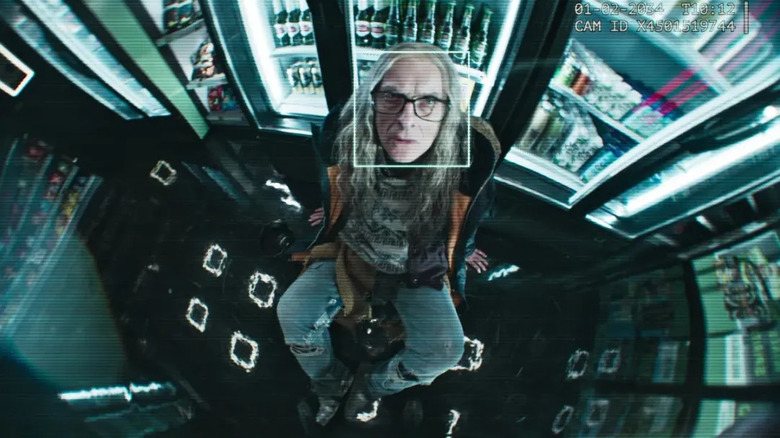Why Black Mirror Creator Charlie Brooker Doesn't Think Technology Is A Problem
A common misconception about "Black Mirror" is that the show's main thesis is no more nuanced than "phone bad." And sure, some episodes seemingly fall into that trap — see season 5's "Smithereens," an episode that's basically a very long "don't text and drive" PSA — but for the most part, the show doesn't settle for a message so simple. The problem is almost always the people, not the tech. The memory-enhancing technology in "Crocodile," for instance, seems like a clear net positive on society, just as the VR reality game in "USS Callister" sure seems like a fun time, if not for Robert Daly ruining it.
The "Black Mirror" creator, Charlie Brooker, has been pretty clear about this in his interviews over the years. "The villain is never technology," he said in a 2014 interview, "And I always find it really quite boring. If I'm watching a sci-fi film and there's like the evil genius is gonna, 'ha, ha, ha, I'm gonna launch this thing, it's gonna enslave everyone.' I can't really relate to that. But I can relate to a guy who gets obsessed with a gadget, and then it gradually ruins his life. So [the show is] more worried than it is attempting to warn anyone."
This attitude is seen in the title of the show itself, which doesn't refer to technology but to what it looks like when technology's turned off and all that's left is yourself, staring back at you. "When a screen is off, it looks like a black mirror because any TV, any LCD, any iPhone, any iPad, something like that," Brooker said. "If you just stare at it, it looks like a black mirror, and there's something cold and horrifying about that."
'Black Mirror' is about the present, not the future
Another misconception about "Black Mirror" is that the show is trying to "predict the future" in any meaningful way. Whenever news comes out about some prison making its inmates ride electricity-generating bikes, or whenever those robot dogs from Boston Dynamics make the news again, people talk (sometimes jokingly, sometimes not) about Charlie Brooker being some sort of oracle. But Brooker was never interested in trying to get the future right; he was focused on taking the problems of the modern day and exploring them to their logical conclusions. It's an approach he borrowed from a previous anthology TV series, "The Twilight Zone." As he explained in that same 2014 interview:
"You look at 'The Twilight Zone,' it's all talking about communism, psychology, space travel, all these things which were contemporary concerns at the time. And that's kind of how that informed that side of Black Mirror, the sort of technological focus or backdrop to a lot of the stories. But having said that, 'The National Anthem' isn't a particularly technological story. It's just about a lack of perceived control in today's world."
You can see the changing concerns of the times reflected in how "Black Mirror" has evolved over the years. The earlier seasons seemed more concerned about social media, especially, and the way it encourages otherwise nice people to take part in mass cyberbullying campaigns without even realizing it. ("The National Anthem," "White Bear," "Shut Up and Dance," and "Hated in the Nation" are all basically about this.) But as the series has gone on, it's become increasingly concerned with artificial intelligence. "Joan is Awful," "Hotel Reverie," and "Plaything" are fascinated by the idea of technology taking on a life of its own, creating supposedly real human connections through a bunch of ones and zeroes.
What emerging societal concern will "Black Mirror" become fascinated by in the next few seasons? I, for one, am very nervous to find out.

